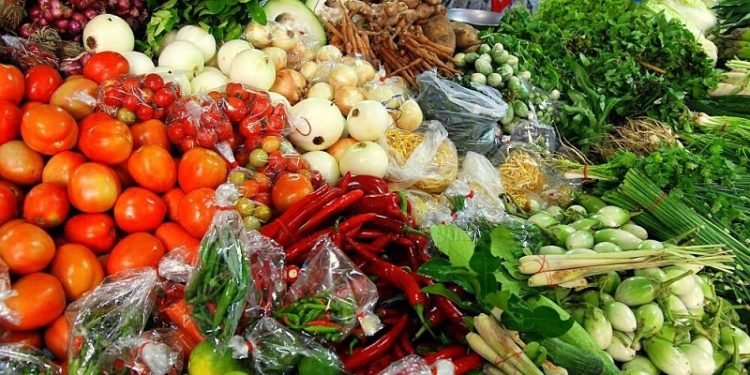According to the latest report by the National Bureau of Statistics, the Consumer price index (CPI) which measures inflation increased by 12.4% year on year in May 2020. This is the highest inflation recorded in over two years.
The increase implies that the average change in the prices of goods and services consumed by people for day-to-day living rose year on year.
May 2020 inflation figure show 0.06% rise when compared to 12.34% recorded in April. This is the 9th consecutive rise in inflation with the latest May rate hitting 25 Month high.
On month-on-month basis, the Headline index increased by 1.17% in May 2020, this is 0.15% rate higher than the 1.02% rate recorded in April 2020.
This rise is largely attributed to the increase in prices of goods and services due to the lock-down measures imposed to control the spread of Covid-19 pandemic. Nigeria has recorded over 17,000 confirmed cases of the virus and more than 450 deaths.
Read more; ‘Major Breakthrough’ in Covid-19 Treatment; 490 new cases recorded in Nigeria
The urban inflation rate increased by 13.03%(year-on-year) in May 2020 from 13.01% recorded in April 2020, while the rural inflation rate increased by 11.83% in May 2020 from 11.73% in April 2020.
The composite food index rose by 15.04% in May 2020 compared to 15.03% in April 2020. This rise in the food index was caused by increase in prices of Bread and cereals, Potatoes, Yam and other tubers, Oils and fats, Fruits, Fish and Meat.
The ”All items less farm produce” or Core inflation, which excludes the prices of volatile agricultural produce stood at 10.12% in May 2020, up by 0.14% when compared with 9.98% recorded in April 2020.
The highest increases were recorded in prices of pharmaceutical products, Medical services, Repair of furniture, Hospital services, Passenger transport by road, Motor car, Bicycles, Maintenance and repair of personal transport equipment, Passenger transport by sea and inland waterways, Paramedical services, Motor cycles and Hairdressing salons and personal grooming establishment.
Read further; The Case of Regency Assurance Insurance Plc: Merger or Recapitalization?
In May 2020, food inflation on a year on year basis was highest in Abuja (18.13%), Osun (17.40%) and Imo (17.13%), while Abia (13.46%), Bauchi (12.97%) and Kaduna (12.97%) recorded the slowest rise.
In May 2020, all items inflation on year on year basis was highest in Rivers (14.69%), Bauchi (14.91%) and Ebonyi, Kogi and Plateau (13.87%), while Benue (11.13%), Adamawa (11.10%) and Kwara (10.58%) recorded the slowest rise in headline Year on Year inflation
The value of money is negatively affected by rise in inflation rate and the purchasing of the public is declined.
This means that the amount of will purchase limited amount of goods than it use to. This scenario presents a difficulty especially for fixed income earners, whose income is not moving in the same direction as the inflation.
The reduction in value of money also have adverse effects on cash assets especially the cash held at hand or in bank accounts.
Nine consecutive increase in inflation rate is not good for the economy. Nigeria has started easing the lockdown measures, but as covid-19 pandemic continues to take its toll on economic activities, the trend in Nigeria’s inflation rate is likely to continue in June.
Written by
Ifunanya Ikueze




















































